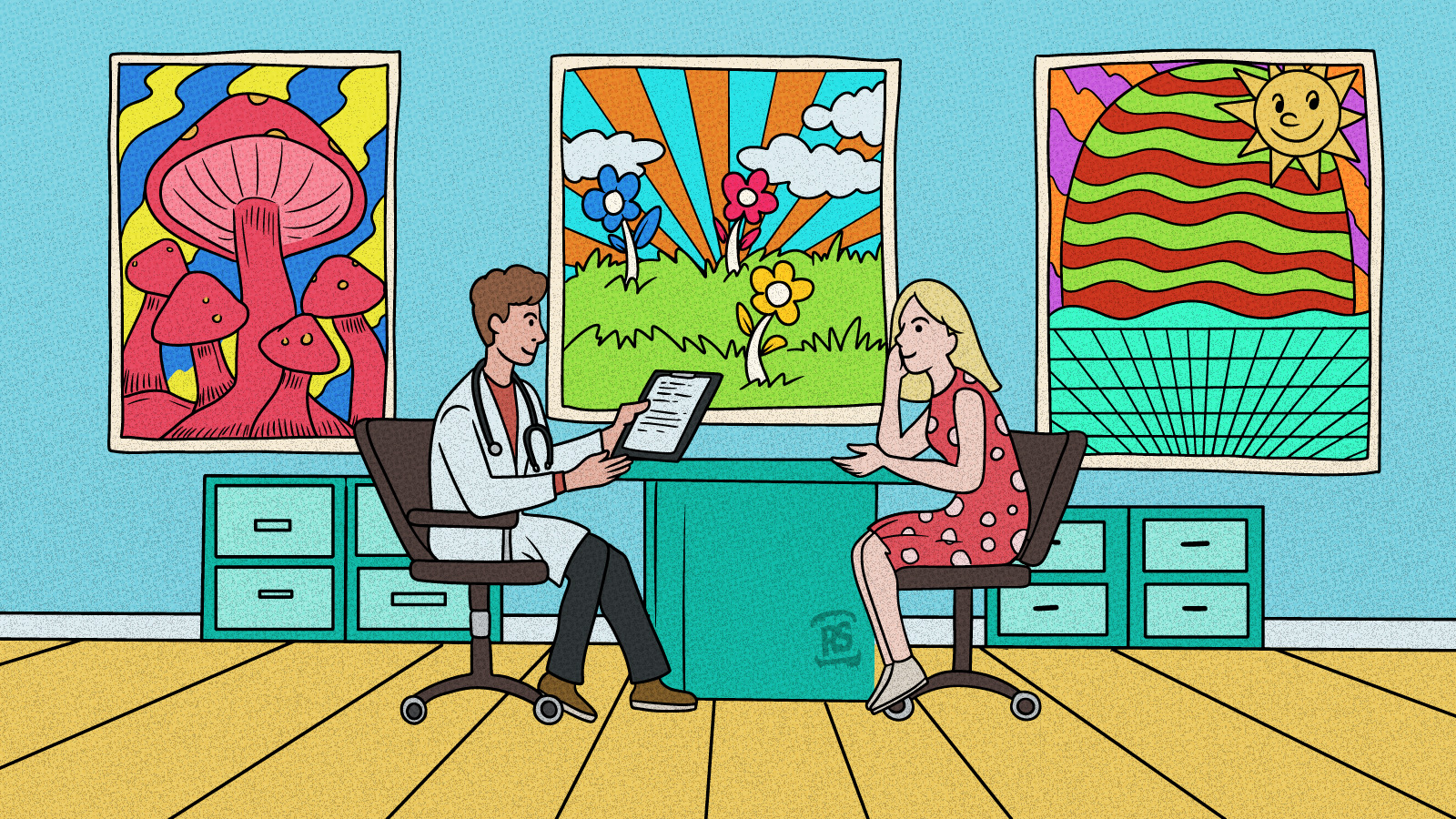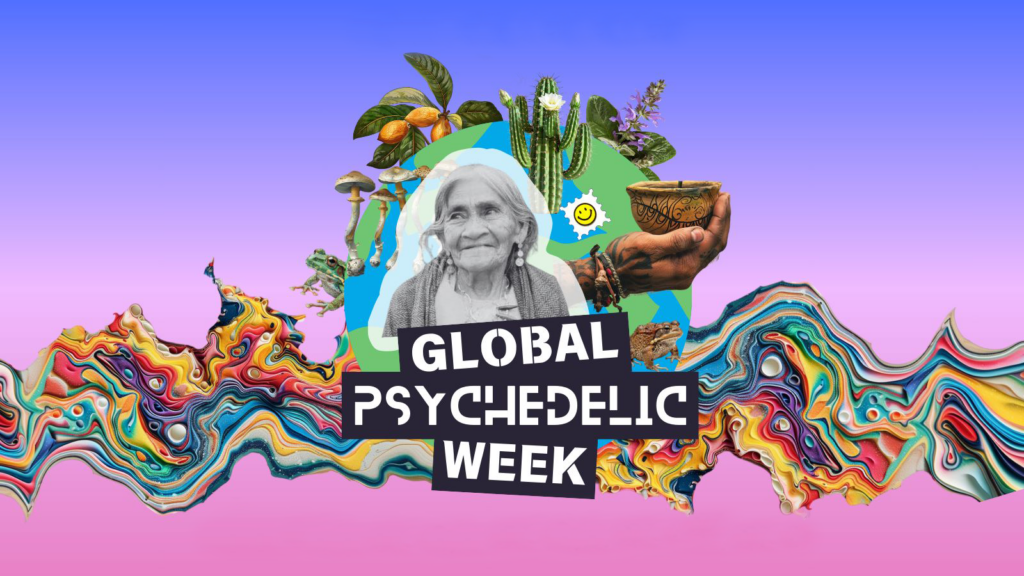In recent years, the world has witnessed a profound cultural and scientific shift in the perception and understanding of psychedelics. This transformation, reminiscent of the 1960s but vastly different in its approach and implications, is setting the stage for a radical change in healthcare and wellness. It has become a field all its own—a psychedelic industry.
As research yields promising results, societal attitudes evolve, and legal frameworks around the globe are being reformed. Psychedelics are not just making a comeback—they are poised to revolutionize our approach to mental health and personal well-being.
Understanding the Psychedelic Renaissance
The resurgence of interest in psychedelics, often termed the “Psychedelic Renaissance,” is a multifaceted phenomenon with profound implications. Unlike the countercultural wave of the 1960s, which was often characterized by recreational use and a spirit of rebellion, the modern Renaissance is marked by a scientific and therapeutic approach.
It is grounded in a growing body of research that underscores the potential of psychedelics to treat various mental health disorders, including depression, anxiety, PTSD, and addiction. This evidence-based perspective is reshaping public opinion and influencing policy reform worldwide, moving psychedelics from the fringes to the forefront of psychiatric research and practice.
Moreover, the current renaissance occurs within a digital and globally connected world. Information about psychedelic research and its benefits is rapidly disseminated, leading to a more informed and open-minded public discourse.
This era also sees a collaborative effort between traditional healers, scientists, therapists, and policymakers aiming to integrate ancient wisdom with modern science for holistic healing practices.
Another key difference lies in the regulatory landscape. The 1960s saw psychedelics quickly banned and stigmatized, but today, there’s a concerted effort to change legal frameworks, allowing for controlled therapeutic use. This shift is not just a relaxation of laws but a recognition of these substances’ potential value for mental health and personal growth.
Specialized Training in Psychedelic Careers
In the burgeoning field of psychedelic therapy and research, specialized training programs like Vital play a pivotal role. These programs are not just educating a new generation of professionals; they are shaping the future of mental health care. Vital and others like it provide comprehensive training that covers the scientific, therapeutic, ethical, and legal aspects of working with psychedelics.
This holistic approach ensures that practitioners are well-equipped to handle the complexities of psychedelic therapy, from understanding the pharmacology of these substances to navigating the profound psychological experiences they can induce.
These psychedelic training programs are crucial in addressing the global mental health crisis. By equipping professionals with the knowledge and skills to safely and effectively use psychedelics in therapeutic settings, they are opening new avenues for treating conditions that have long been challenging, such as treatment-resistant depression, severe anxiety, and PTSD.
Moreover, the inclusion of traditional healing practices and cultural sensitivities in these curricula acknowledges and respects the indigenous roots of many psychedelic substances, fostering a more inclusive and holistic approach to mental wellness.
Adapting Current Careers to Include Psychedelics
The psychedelic renaissance is creating new career paths and transforming existing ones. Mental health professionals, including psychologists, psychiatrists, and counselors, are increasingly seeking training to integrate psychedelic therapies into their practice. This integration requires a paradigm shift in how they approach treatment, moving towards more holistic and experiential methods.
Beyond mental health, the influence of psychedelics is extending into other fields as well. For instance, neuroscientists and pharmacologists are leaning into research on how psychedelics affect the brain so they can explore developing new medicines.
Even professionals in areas like law and policy are finding their roles evolving as they work to navigate and shape the legal landscape surrounding psychedelic use.
In holistic medicine, practitioners are incorporating psychedelic-assisted therapies to complement traditional modalities. This trend represents a broader shift towards integrated, patient-centered care, where psychedelics are part of a comprehensive treatment plan.
The Future of the Psychedelic Industry Workforce
As illuminated by the survey of Vital program participants, the psychedelic workforce’s future promises a diverse and dynamic landscape. The key findings from this survey paint a picture of a workforce that is not just varied in terms of professional background but also in terms of their aspirations and approaches to integrating psychedelics into their work.
This emerging workforce comprises individuals from various professional backgrounds, including mental health, medicine, academia, law, and the arts. Many of these individuals are not newcomers to their fields; instead, they are seasoned professionals seeking to enhance their practices with psychedelic knowledge.
This diversity brings a richness of perspective and expertise, crucial in a field as nuanced and interdisciplinary as psychedelic therapy.
Diversity and Inclusion in the Psychedelic Field
The importance of diversity and inclusion in the psychedelic field cannot be overstated. The survey revealed a workforce that is conscious of and committed to addressing the needs of diverse populations.
This is particularly valuable given the historical context of psychedelics, which includes both indigenous use and a legacy of stigmatization. A diverse workforce ensures that psychedelic therapy is sensitive to and inclusive of different cultural, ethnic, and socio-economic backgrounds.
Participants in the Vital program and similar initiatives come from various walks of life, ensuring that the future psychedelic workforce is not monolithic but richly varied. This diversity is not just in terms of ethnicity and culture but also in terms of gender, sexual orientation, and professional background. Such inclusivity is vital for creating a field that is empathetic, equitable, and capable of serving a broad spectrum of society.
Service Delivery in the Psychedelic Sector
The survey highlighted many ways professionals plan to deliver services in the psychedelic sector. This includes direct therapeutic roles, such as guiding individuals through psychedelic experiences in clinical settings.
However, the scope of service delivery extends far beyond the clinical. Professionals are preparing to offer educational services, community-based programs, and support for businesses seeking to understand the potential of psychedelics.
In the realm of therapy and counseling, practitioners are gearing up to offer not just the psychedelic experience itself but also pre-therapy preparation and post-experience integration support. This comprehensive approach ensures that clients receive support throughout their journey, maximizing the therapeutic benefits of psychedelics.
Additionally, the field is seeing the emergence of roles that cater to the broader ecosystem of psychedelics. This includes roles in legal advocacy, policy development, and ethical guidance, ensuring that the sector’s growth is responsible and aligned with societal values.
The Global and Diverse Nature of Psychedelic Training
The implications of having a globally diverse and trained psychedelic workforce are profound and far-reaching. Such diversity not only enriches the field of psychedelic therapy and research but also ensures a more comprehensive and culturally sensitive approach to mental health care.
Enhanced Cultural Competence
A globally diverse workforce brings a wealth of cultural knowledge and understanding, which is critical in a field that deals with deeply personal and often culturally influenced experiences. This diversity allows for a more empathetic and effective approach to therapy, as practitioners can better understand and respect the cultural backgrounds of their clients.
It also facilitates the integration of traditional indigenous practices with modern therapeutic techniques, honoring the ancestral roots of many psychedelic substances.
Broader Accessibility and Relevance
With professionals from various parts of the world, psychedelic therapy becomes more accessible and relevant to a broader audience. This global representation ensures that therapies are not limited to a Western perspective but are adapted to meet the needs and sensibilities of diverse populations.
As a result, the benefits of psychedelic therapy can reach individuals in different regions and socio-economic backgrounds, contributing to a more equitable mental health landscape.
Diverse Perspectives in Research and Policy
The variety of viewpoints and experiences within a diverse, globally trained workforce can lead to more innovative and comprehensive research in the field of psychedelics. It encourages the exploration of different therapeutic models and treatment protocols, enriching the overall body of knowledge.
Additionally, this diversity is crucial in shaping fair and effective policies around the use of psychedelics, ensuring that they are inclusive and considerate of various cultural and ethical perspectives.
Fostering Global Collaboration
A diverse workforce fosters global collaboration and knowledge sharing, which is essential for the advancement of the field. This collaborative environment allows for the pooling of insights, techniques, and experiences from different parts of the world, driving innovation and progress in psychedelic therapies and research.
Addressing the Global Mental Health Crisis
The global mental health crisis demands solutions that are as varied and complex as the problem itself. A diverse and globally trained workforce is better equipped to address this challenge, offering a range of therapeutic options and approaches that resonate with individuals from various backgrounds and experiences.
Looking to the Future
As we journey through the burgeoning landscape of psychedelic therapy and research, the significance of the emerging psychedelic workforce in reshaping healthcare and wellness becomes increasingly apparent.
Central to this paradigm shift is the role of specialized training programs, equipping professionals with the comprehensive skills needed to safely and effectively incorporate psychedelics into therapeutic practices.
The future of the psychedelic workforce, as revealed by the insights from the Vital program participants, promises a new future of dedicated individuals. These professionals are not only from varied backgrounds but also bring a wealth of perspectives, ensuring that the field is inclusive and equipped to address the needs of a diverse global population.














